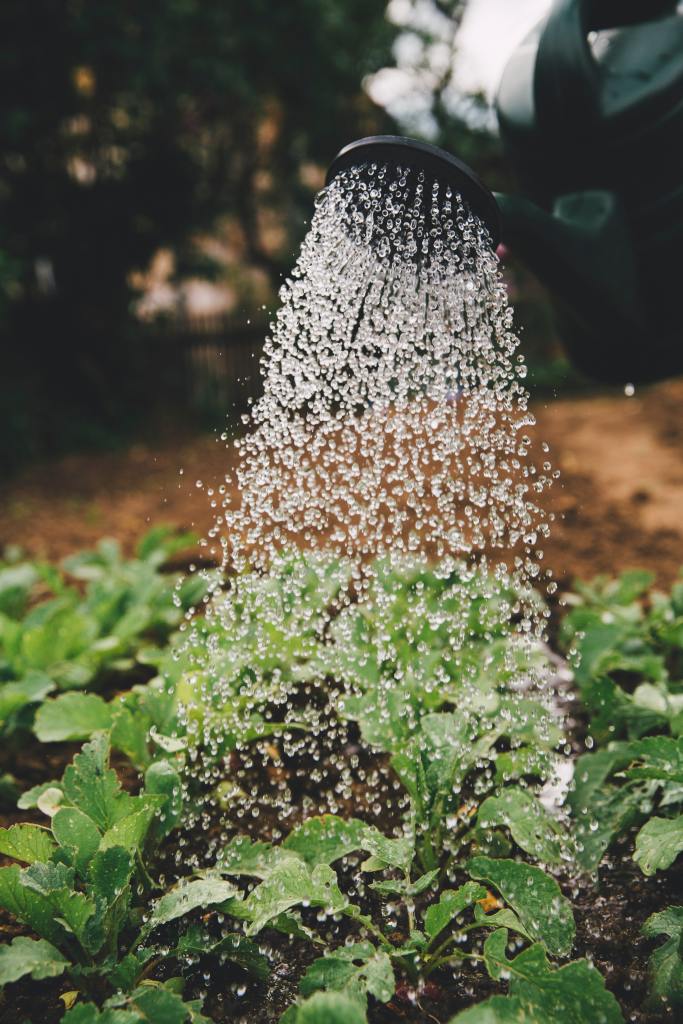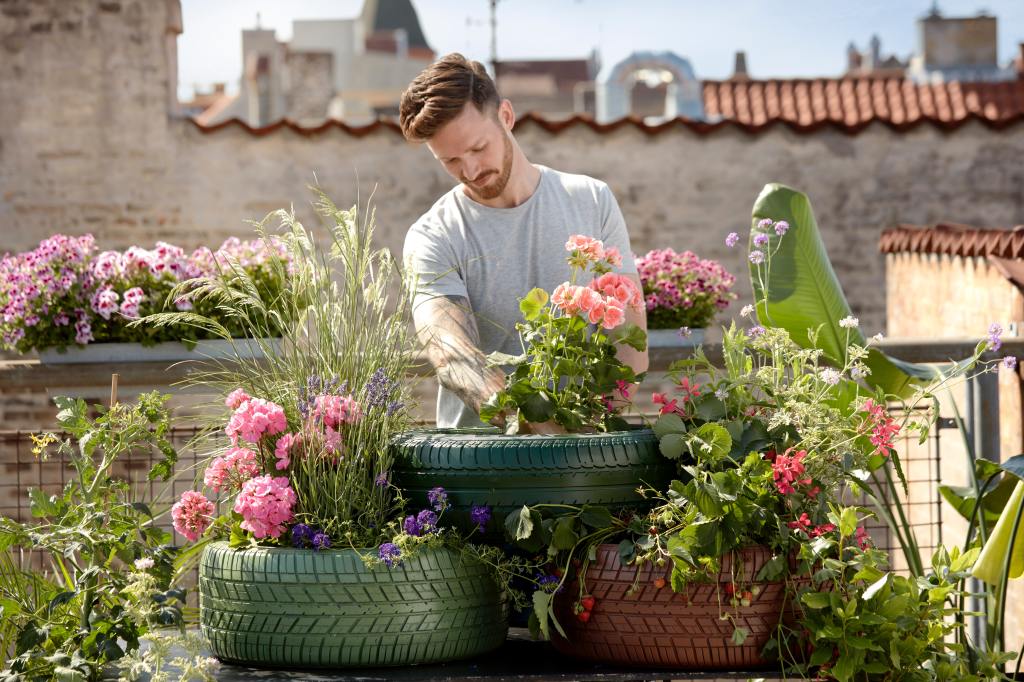Listen on Spotify.
Starting your own garden can be immensely satisfying as well as challenging. There are some common gardening mistakes you’ll want to avoid. Bad habits like not leaving your plants enough room to grow and overwatering put gorgeous, flourishing gardens in jeopardy. In the rest of this article, we’ll go through some common gardening mistakes we make, so that you can avoid them and give yourself the best chance of cultivating your dream garden.
Later, we’ll give you some tips on how to find the best spot for your garden so you don’t build your garden in an unsuitable place. First, though, let’s talk about one of the most common gardening mistakes people make that you should avoid; overwatering.
Without further ado, let’s get into it.
Overwatering plants
Remember to water the roots of your plants and not the leaves. Seedlings indeed need plenty of water, but if you keep their roots well-watered they will grow and extract moisture from the soil.
Overwatering can flood your plants and stress them and can be as bad as entirely forgetting to water them. Giving them more water won’t make plants healthier or grow faster. In fact, growing your plants in continuously wet soil is likely to kill the roots.
By watering them every day your plants are likely to set shallow roots because if they can access water on the surface, there’s no need for them to grow a strong, deep network of roots to search for water. Vegetables like tomatoes or squash need the support a big root system can provide.
You should water your plants between 1-3 times a week depending on the amount of rain you have and the temperature but do so thoroughly each time. It’s best to water in the morning because if you do so in the heat of the afternoon, any water left on the leaves can magnify the sun and cause the leaves of your plants to burn. If you water them in the evening any excess water won’t evaporate and might invite fungus growth.

Not keeping track of what needs to be done
You need to put time and effort into your garden. Lots of us give up after a while because there’s more work involved than we imagined. To help keep on top of your gardening tasks and avoid becoming overwhelmed and giving up, keep a checklist of stuff that needs to be done, and tick tasks off as you finish them. That way, you’ll give yourself the best chance of sticking with it and creating a beautiful garden filled with plants you love and vegetables you love to eat.
Not giving plants plenty of room
Don’t try to put your plants into a small space, packed too closely together. Remember, they need room to stretch their roots and grow. If you’re unsure how much space your plants need, check the labels for some hints. Next, let’s explore how you can avoid building your garden in an unsuitable place
Avoid the common gardening mistake of creating it in the wrong place
Plan your garden so that you don’t end up having it in the wrong place. Usually, the south side of your house will be exposed to the most sun, if you live in the northern hemisphere. Remember, if you want to grow fruit and veg, most need about 8 hours of direct sunlight per day. If you have too much shade in your garden, you might want to consider chopping down a couple of trees to allow more light in.
As well as making sure your garden gets enough sun, you’ll want to consider the best place to get water from so that it doesn’t take a lot of effort to keep it well watered. That way, you’re far more likely to stick with your endeavour than if you don’t think of this and therefore make watering your plants seem an insurmountable task.
It’s worth making sure that your garden placement is convenient for you as the gardener. After all, you’ll be more tempted to ignore your garden if you create it in a corner you find it hard to get to. The trick is to find a place in your garden you can get to easily, that’s close to a water source, and gets enough sunlight. Soon, we’ll cover the mistake of not doing enough research before starting your garden. For now, let’s explore the rookie mistake of not preparing your soil.
Failing to prepare your soil
You can easily find out what you’re working with by doing a simple soil test. You will then know what you need to do to give your plants the best chance to thrive by improving the quality of your top soil. You can test the PH of your soil with a testing kit from the garden centre. Most vegetables and plants will grow well in soil with a PH of 6 or 7.
Learning about composting is invaluable for gardeners. The decayed organic material that compost is made of will give your plants a boost. To make sure you are replacing the nutrients in the soil, you should add compost and organic fertiliser to your garden at least once a year.
Air is important for the worms and bacteria that live in the soil, and without having worms and bacteria, you won’t have the most fertile, best quality soil. Your plants also need oxygen to grow. To keep your soil aerated, dig it with a spade or garden fork to reduce compaction. If you’re not confident about the quality of your soil, you can try building raised garden beds that will ensure you have soil ready for gardening.
Be careful with the amount of water you use in your garden. Too much will cause roots to rot, while too little will cause your plants to die. Now let’s look at how not researching the plants you’re growing can lead to mistakes.
Forgetting to research plants you’re growing
In gardening, as in every walk of life, there are exceptions to every rule. While most plants, particularly vegetables, thrive in direct full sun, some prefer shade, just as some will grow well in acidic or alkaline soil. Fail to do your homework and you won’t give your garden or vegetables the best chance to flourish.
On the other hand, If you research the plants you want to grow, you’ll see improved yields come harvest time. Here are a few tips for some vegetables.
- Tomatoes thrive in slightly acidic soil (about 6 on the PH scale) full of calcium and nitrogen.
- To avoid growing bitter tasting lettuce, ensure it gets a bit of shade. It does best in neutral soil too.
- Beans need full sun and grow well in slightly alkaline soil that doesn’t have too much nitrogen.
- Some plants will have a longer growing season and will like more heat and sun and some will grow better in cooler shade.
Next, we’ll explore why you shouldn’t take on more than you can handle when you’re a beginner.
Biting off more than you can chew
Remember that gardening is a skill you need to cultivate gradually over time. Take on a little at a time so you can manage it. If you try to grow 30 different plants in your first year, you are setting yourself up for failure. You won’t have time to keep up with the amount of weeding you need to do and you’re vegetables might spoil because you didn’t have enough time to harvest them and you’ll probably be discouraged. So, in your first year, it’s better to concentrate on growing a few of your favourite plants and vegetables to avoid this particular common gardening mistake.
Adding too much fertiliser
You need to add fertiliser if you want your plants to thrive. However, you need to add it at the right time and use the right amounts too. This is another reason you should research the best fertiliser for the plants you’re growing. Here are some examples of the kind of fertiliser you’ll need.
- If you want to grow large plants with healthy leaves, you’ll need nitrogen rich fertiliser.
- If you are growing tomatoes, you want fertiliser with plenty of calcium in it.
- Grape vines like a little fertiliser at the beginning of spring when they are waking up. If you fertilise it in the autumn, it will put out new growth but the fruit will be killed by the frost.
Before we discover why you shouldn’t be too hard on yourself as a novice gardener, let’s find out how vital it is to choose the right plants.
Not choosing the right plants
You need to consider the conditions in the area you live. Plants that need a dry environment won’t thrive if you live somewhere that gets a lot of rainfall, just as plants that like a lot of moisture won’t do well in dry conditions. So, if you make sure you pick plants and varieties of vegetables that will grow in your garden, you can avoid choosing the wrong plants and setting yourself up for disappointment.

Beating yourself up
Don’t be too hard on yourself if things go wrong. There’s an art to gardening and the necessary skills are hard to pick up in a few months. On top of that, nature is notoriously unpredictable and even if you have every possible element planned, things can go wrong.
So remember that no one’s garden is perfect and unpredictable weather can overturn the best-laid plans. The only thing you can do when that happens is dust off your gardening gloves, grab your gardening fork and get digging to get your dream garden back on track.
The wrap up
We’ve covered 10 common gardening mistakes you’ll want to avoid to give yourself the best chance of creating an impressive, beautiful garden you can be proud of.
Remember:
- Don’t overwater your plants.
- Keep track of what needs to be done in your garden.
- Give your plants plenty of room to grow.
- Make sure you build your garden in a suitable place.
- Prepare your soil.
- Research your plants.
- Don’t bite off more than you can chew.
- Add the right fertiliser at the right time to help your plants grow.
- Choose the right plants for your garden.
- Don’t beat yourself up if things do go awry.
I hope you can go forth and begin cultivating your own wonderful gardens, armed with the knowledge of how to avoid these common pitfalls. When you do make a mistake consider it all part of a learning curve and an essential part of becoming a better, more skilled gardener. After all, even the most advanced green-fingered gardeners amongst us make mistakes. Most importantly, remember to have fun and enjoy your new-found hobby.

Excellent tips! Thank you 🌍😊
LikeLike
Thanks so much for this. It’s lovely to know someone is reading it.😊 If there are any topics you’d like me to cover, I’d be happy to.
LikeLiked by 1 person
You are welcome 😊🌍
LikeLiked by 1 person